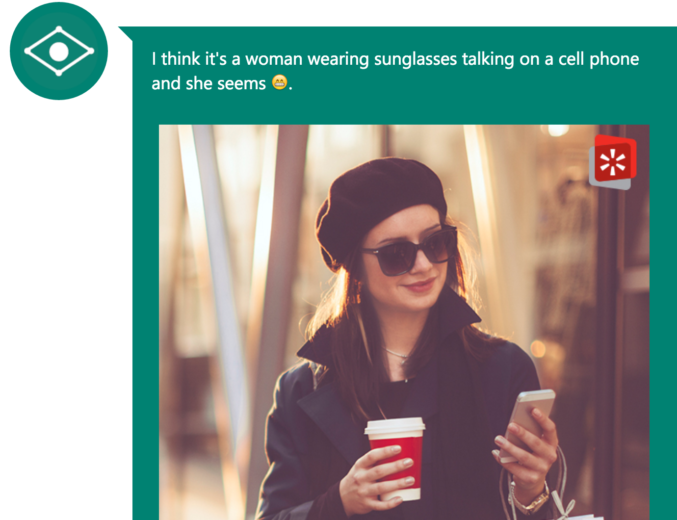Last week’s Hero Conf London event showcased dozens of excellent speakers who all made thought-provoking points. However, the most memorable moments for me were when the speakers gave their best prediction of the future.
Sophie Newton of Brainlabs spoke on the future automation of PPC during her opening keynote. Various other speakers then followed up with more specific predictions related to the future of mobile, video, and other PPC categories. Based on those speakers’ presentations and predictions, I came to one overarching hypothesis – future consumer expectations of businesses are being molded based on present-day interactions with artificial intelligence (AI).
How Is AI Used Today?
Businesses collect data. Data fuels AI. AI interacts with us like humans. Thus, businesses interact with us like humans through the use of data. You may not even realize all of the scenarios in which we already interact with AI. A few examples include:
- Ecommerce companies using AI to predict sales and suggest products
- Automated opponents in video games making their own decisions
- Personal assistants like Siri helping us with minor tasks or research
Sometimes AI is used to promote a product and sometimes it is the selling point of a product. Regardless, AI is infiltrating our lives and should impact the way you create PPC strategies moving forward.
AI Improves As It Obtains Data
AI uses data to understand patterns amongst individuals and groups of consumers. The more data an AI tool has, the more it has an overall understanding and ability to accurately predict future consumer needs, wants, or situations.
Take this example from the Bing keynote.
Captionbot, powered by Microsoft Cognitive Services, is a tool that automatically captions images. Tor Thompson, the Bing keynote speaker, mentioned that the more we test the Captionbot, the more accurate it will become as it’s amassing data. I tested it out and found the guesses to be at least a 3-star rating of accuracy (out of 5) when using images of humans in action. Captionbot will only improve with time as it’s exposed to more images.

AI Is Changing Consumer Expectations Of Business Interaction
Several of the futuristic predictions made at Hero Conf London shared a common thread, which was the humanization of digital advertising. I came to the conclusion that the more that we, as consumers, have positive experiences with AI, the more we expect all companies and/or products to interact with us like they’re human. That includes PPC interactions.
Evidence: We like engaging with products as if they’re human.
Take voice search as an example. Voice searches are becoming exponentially more common. We want Siri or Cortana to answer our questions. We want them to help us find answers for day-to-day questions by letting us ask out loud, as we would with another human that was standing next to us when the question arose.
What that means for PPC: James Murray, also from Bing, discussed various tactics for humanizing search, by focusing on human intent rather than specific keywords. You can see Impression’s full break-down of the session here.
Evidence: We want to share experiences via video, over all other mediums.
Watching videos is about witnessing a real-life moment that you didn’t get to see yourself. It’s the most life-like depiction of a human experience, compared to text or static images.
What that means for PPC: Alan Duvall spoke to the end of the written word and the rise of video in his breakout session at Hero Conf. Before explaining how we need to adapt to this shift in PPC, he quoted Mark Zuckerberg, who said,
“I wouldn’t be surprised if you fast-forward five years and most of the content that people see on Facebook and are sharing on a day-to-day basis is video.”
Alan then described more specific strategies for interrupting consumer patterns with video by focusing on connection with the consumer and overall likability.
Evidence: We want companies to build rapport and earn respect as if we have a human relationship with them.
Karl Gills spoke to this topic in the most animated presentation I’ve seen. It was called “Don’t Do anything on Your Website You Wouldn’t Do on a First Date.” His point was that consumers get turned off by the same things that end dating relationships. He equated the pop-up form fills that appear within the first 5 seconds of hitting a site to going for a French kiss at the beginning of a first date. As advertisers, we should not assume that the consumer already has enough interest in our company (after 1 site visit) to give us their personal information or purchase a product. We have to build a relationship with our customers rather than rush the conversion.
What that means for PPC: My favorite quote from the entire conference was in this session and summarizes the relationship aspect of PPC well: “Stop selling the way you want to sell. Start selling the way people want to buy.” In the relational realm, this is often stated as, “Treat others the way they want to be treated.” If you had your pick, would you rather a company treat you like a number or like an individual throughout the PPC funnel?
The Humanization Of Digital
[bctt tweet=”More than ever before, we expect businesses to behave like individuals. ” username=”AlainaPThompson”]
Transparency, brought to us by the Internet, has changed the way we view companies. We can now get to know a company and engage with it before we make a transaction. We use the moments of interaction we have with a company to discern whether or not we should/want to buy from them.
We expect our interactions with businesses to be similar to our experiences with individuals. If a company seems like exactly that, a company, why should I feel loyal to it? It’s an organization, not a human. If I don’t get to know the company, like I would a human, any transaction or conversion that comes from that interaction is less meaningful. It’s easy to forget.
The trending practices of PPC – voice, video, relationships etc. are built upon the humanization of digital, which AI has brought to consumers. I’m looking forward to seeing where else the humanization of digital continues to lead our industry.
I’m interested in your thoughts and opinions, so feel free to reach out to me via Twitter @AlainaPThompson.



